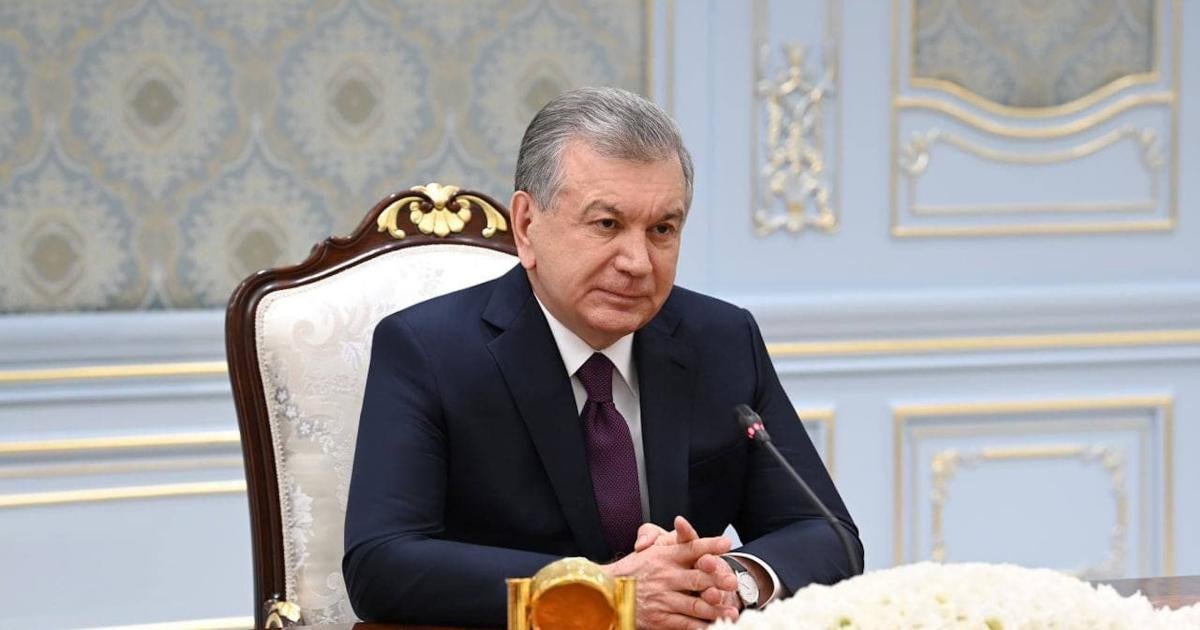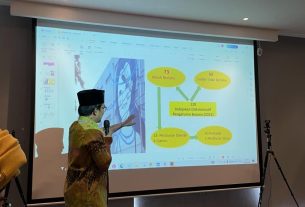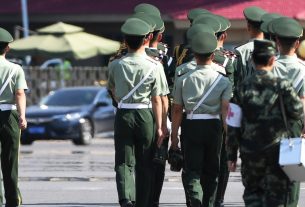(Berlin, May 30, 2024) – Increasing numbers of people in Uzbekistan are being prosecuted and imprisoned for “insulting the president online,” Human Rights Watch said today. The criminal charge carries a maximum sentence of five years in prison and violates international human rights law.
“People in Uzbekistan should be able to criticize the president and other authorities openly, without fear of reprisal,” said Hugh Williamson, Europe and Central Asia director at Human Rights Watch. “The government should urgently repeal the offense of ‘insulting the president online’ and take immediate steps to release anyone imprisoned on this charge.”
Uzbek authorities should stop prosecuting citizens who have criticized President Shavkat Mirziyoyev and his family and repeal the law that makes it an offense.
Human Rights Watch reviewed one indictment and five verdicts handed down to people in Uzbekistan in the last year on the charge of “public insult or slander against the President of the Republic of Uzbekistan, as well as using the press or other media, telecommunications networks, or the Internet,” under article 158, part 3 of the Uzbek Criminal Code, and found that authorities in Uzbekistan are wrongfully prosecuting citizens for nonviolent exercise of their right to freedom of expression.Other reports indicate even higher numbers of prosecutions on this charge.
Otkirbek Sobirov, 27, expressed his frustration on social media in January 2023 with interruptions to the supply of gas and electricity in the city of Kokand. On May 16, 2023, a Fergana court sentenced Sobirov to two years and three months in prison on charges of “insulting the president online,” “attempting to overthrow the Constitutional order of Uzbekistan,” and “mass riots” under articles 158, part 3; 159, part 1; and 244, part 2b of the criminal code.
The verdict says that Sobirov, who admitted he was frustrated about the gas and electricity cuts during the winter months, sent multiple messages in a Telegram group in which he criticized state policies and called on the president to resign. He also called for a rally against gas and electricity shortages in Kokand.
A state-ordered linguistic analysis concluded that Sobirov’s messages contained calls and ideas aimed at overthrowing legitimate representatives of the authorities, as well as signs of a call for riots that threaten public peace.
On October 26, 2023, the Kattakurgan district court convicted Dilshod Iskandarov, 19, of “insulting the president online” and sentenced him to two-and-a-half years in a penal colony. A state-ordered expert analysis concluded that a single comment Iskandarov made on Instagram, in which he cursed the president’s family under a video of the family, was “insulting and discrediting.”
The verdict notes that sometime after he wrote the comment he deleted it, and that he voluntarily returned to Uzbekistan from Russia after he learned a criminal case had been opened against him.
On March 28, 2024, the Namangan city court sentenced D. Tursunov, 27, to five years in prison for “insulting the president online.” According to the verdict, Tursunov, using the Facebook profile “Muhammad Sanjar,” commented about the Uzbek president attending Moscow’s Victory Day parade, saying: “The traitor went [to Russia] to get a white blessing for [his] lifetime rule.”
The prosecution alleged that Tursunov also insulted President Mirziyoyev, saying: “Even if a donkey circumambulates the Kaaba not twice, but a hundred times, he remains a donkey!” Tursunov was additionally found guilty of illegal border crossing because he did not possess an exit visa when he left Uzbekistan in September 2016. According to media reports, Tursunov returned to Uzbekistan in December 2023 and was arrested upon his return. Uzbekistan stopped requiring exit visas for citizens traveling abroad in 2019.
Sitora Bazarova, 24, was sentenced in early 2024 to five years and two months in prison by a Termez court on multiple criminal charges, including “insulting the president online.” According to the indictment, in May 2022, Bazarova posted on her Facebook page a video of two pictures that were set on fire, one of President Mirziyoyev, with the words “cuckold, let your family burn” written across it, and another of Saida Mirziyoyeva, the president’s daughter, who serves as his first assistant, with the word “slut” written across it.
A court in the Samarkand region sentenced Bunyodjon Boboniyazov, 39, to five years and one month on October 19, 2023, with a state-ordered linguistic analysis of comments he had made on Facebook as evidence that Boboniyazov attempted to overthrow the constitutional order and insulted the Uzbek president online.
Sobir Normamatov, 28, from the Samarkand region, was sentenced to two years and six months of corrective labor on April 8, 2024, for comments, including obscenities, he posted under three videos of President Mirziyoyev and one of Saida Mirziyoyeva on Instagram. In the comments, Normamatov referred to President Mirziyoyev as “a clown” and “duplicitous.”
Human Rights Watch has also seen the ruling of an appeals court in the case of a 40-year-old man in Kashkadarya who was sentenced to four years and six months in prison in February 2022 on charges of “insulting the president online” and “insult.” The ruling does not specify what speech served as the basis of the man’s conviction. Also in February 2022, the blogger Sobirjon Babaniyazov was sentenced to three years in prison under article 158 of the criminal code for videos and audio messages on Telegram that allegedly insulted the president.
Laws that penalize criticism of public figures are contrary to international law and the fact that some forms of expression are considered insulting is not sufficient to justify criminal prosecutions, far less imprisonment, Human Rights Watch said. The offense of “insult” against the president or other officials simply turns the criminal justice system into a tool of the government to take revenge against anyone who offends or slights it.
The United Nations Human Rights Committee, the independent expert body that monitors compliance with the International Covenant on Civil and Political Rights (ICCPR), states in its general comment on freedom of expression that “imprisonment is never an appropriate penalty” for defamation and that “all public figures … are legitimately subject to criticism.”
In 2020, President Mirziyoyev pledged to decriminalize defamation but has yet to do so. Instead, in March 2021, Uzbekistan introduced a new provision making insulting the president online—an even broader offense than defamation—a criminal offense.
The first known prosecution on this charge was of Valijon Kalonov, a blogger and government critic, who, in the lead up to the 2021 presidential elections, criticized the president and called for a boycott of the election. In December 2021, a Jizzakh court ruled that Kalonov could not be held criminally liable and sent him for compulsory psychiatric treatment.
For the last two-and-a-half years, Kalonov has been forcibly held in psychiatric detention, with authorities refusing to discharge him, a grave violation of his rights to liberty and security, health, bodily integrity, and freedom from inhuman or degrading treatment or punishment. The authorities should immediately release him, Human Rights Watch said.
“These ‘insulting the president’ cases make a mockery of President Mirziyoyev’s reform pledges, demonstrating instead a willingness to resort to tactics used by his strong-arm predecessor, Islam Karimov, to crack down on dissent and muzzle critical voices,” Williamson said. “The practice of locking people up on criminal insult charges has absolutely no place in a rights-respecting country.”



